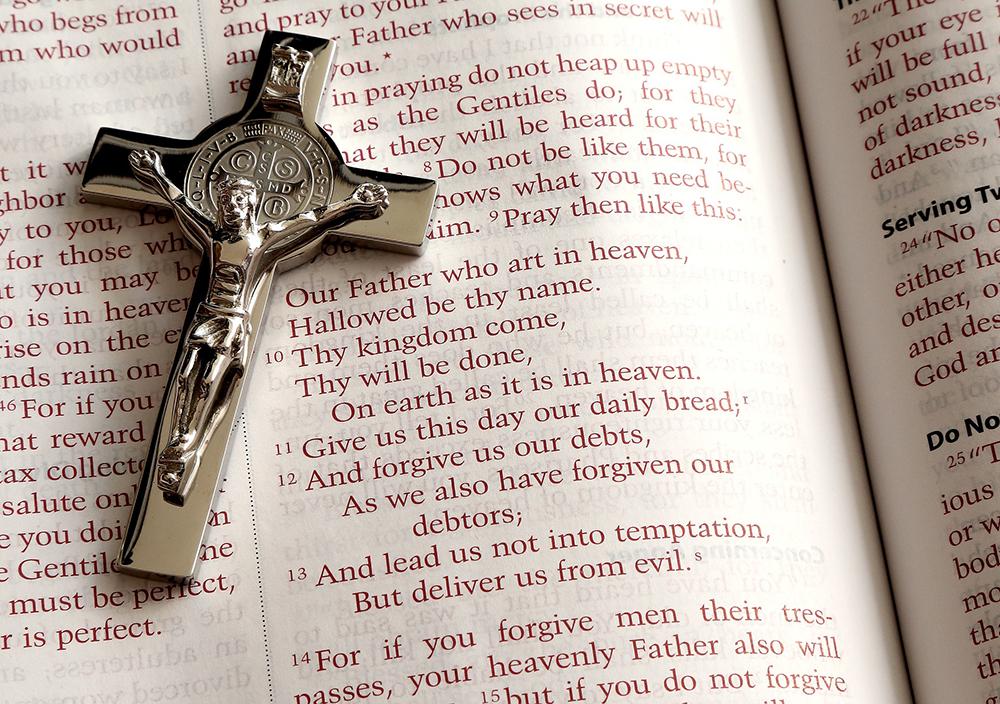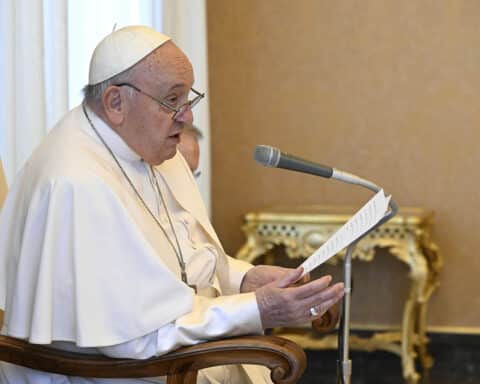
“If it is not possible …” In English, this phrase should give us pause. What does it mean that it’s not possible for God to redeem the human family in another way? Could God have not saved men and women without the death of the Son? Was God so beholden to the sin of our first parents that death was the only available malady?
The Greek word used in Matthew is dunatai. In later Latin, it is potest. Both words indicate possibility but also that of power or potentiality. If it is not within the Father’s power to take away this cup, then God’s will be done.
| April 26 – Third Sunday of Easter |
|---|
|
Acts 2:14, 22-33
Ps 16:1-2, 5, 7-8, 9-10, 11
1 Pt 1:17-21
Lk 24:13-35
|
The reading from Acts on the Third Sunday of Easter reintroduces us to the question of possibility, this time around the impossibility of death itself. Peter stands amid the citizens of the city of Jerusalem on that first Pentecost morning, proclaiming the triumph of Jesus Christ over death. In this first public proclamation to the world, Peter asserts that it was not possible for Jesus to be held by the pangs of death (cf. Acts 2:24). In Latin, it is inpossibilis. But why?
Peter turns to the psalms of David in answering this question. Psalm 16 praises God as the refuge of the righteous one. If one is righteous before God, keeping the law close to his heart, remaining obedient, then this one has nothing to fear from death itself. The righteous one will not go down into the pit of Sheol, into the abyss of nothingness. God will show the path of life.
Thus the impossibility of death for Jesus depends on his obedience to the Father. He is the one who loved unto the end, the very bitter end. And the Father’s mercy is such that it can never forgive this obediential offering of love. Light will conquer the darkness of desolation. It is impossible for God to act otherwise, for this is what God promised us.
Jesus’ obedience, his love unto the end, is itself the very possibility of God, the impossibility that death can reign over the human family. The disciples on the road to Emmaus are trapped in another form of impossibility. It is the impossibility that the Father can act amid the death of the beloved Son.
And yet this is the Good News that Peter proclaims to Jerusalem. This is the Good News that we proclaim today in churches throughout the world.
Easter is the feast of death’s impossibility.
And yet, we know better this year than most that death’s sting is very real. The sting of this disease, this virulent virus, has killed so many. It has locked us up in our homes, keeping us away from the parish and public square alike.
Like Our Lord, this Easter we are called to the obedience of love. Such obedience entails suffering, it hurts. And yet, the Father who did not allow the beloved Son to perish will also lift us up out of the pit of destruction, the darkness of desolation.
God’s possibility is a different kind of logic. It’s the possibility that even the most violent death can become a source of redemption for you and for me.
Death is impossible.
And God’s possibility is that God can redeem even this, even this bitter cup of suffering.
Timothy P. O’Malley, Ph.D., is the director of education at the McGrath Institute for Church Life at the University of Notre Dame.





